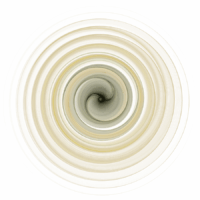The Awareness That Heals blog posts present curated articles that offer effective pointers and practices to help support yourself during times when challenging emotions and difficult feelings arise. Based on the principles in the book Awareness That Heals, these articles offer practical methods to help us move toward a state of greater emotional well-being—especially during problematic times. The good news is that these are challenges that can be faced and embraced, thereby giving us a unique opportunity for effective self-care and self-healing.
The Art of Setting Clear, Graceful Boundaries with Family and Friends This Holiday Season
All over the world, we’re grappling with family and friendship dilemmas. In America alone, these challenging situations are probably more complex than they have been in a very long time — probably even since the Civil War. Most of my friends, colleagues, and clients are in the midst of dealing with impossible relatives or conversations that revolve around prejudice, hatred, racism, insurrection, political divisions, immigration, or homeless intolerance, to name a few. Read more . . .
Awareness of Aggression
One of the areas that each of us have enormous needs that usually get unrecognized is to become much more aware of our own aggression and all the different ways it expresses itself, including frustration, impatience, irritability, contraction, just being uptight in any way. So, as you’re reading this right now, just let yourself go inside and start to scan where and how do I express my anger, my frustration, my impatience? And let yourself get a feel for what it’s like for you to be in your most aggressive, frustrated, impatient states in your very personal life.
The Great Loss Spiritual Teachers Withholding Their Own Challenges
I don’t know how it’s been for you. But for me, spiritual teachings and teachers, religious teachings and teachers have been by far the most inspirational and fulfilling experiences of my life and at the same time have also been amongst the greatest disappointments. And the central reason why the disappointments have been there is because I so longed to have the teachers include what their challenges were and help guide me by showing me how they guided themselves with their own teachings.
Why you should stop obsessing about coronavirus news, and how to do it.
When you are frightened or feeling really anxious while reading the news about the coronavirus epidemic, the key in situations like this is to be aware of and allow whatever feelings are there. Recognize these feelings are perfectly natural given the circumstances, be as kind and accepting of yourself as possible, and ask, “What thoughts …
Accessing Awareness that Heals
The first guided meditation from Robert Strock’s book, Awareness that Heals, helps you maintain awareness of a challenging emotion in order to have a chance to have a healing influence on yourself.
Developing Wisdom Guidance
In the first four chapters, we explored awareness that heals, friendly mind, moving from self-rejection toward self-compassion and inquiry. All of them, especially inquiry, can help us access our wisdom guidance and persevere when access is difficult. To define it from a different perspective, our wisdom guidance frames in word and tone the message that …
Understanding Healing Awareness
Discover the part of you that wants to care about yourself while you are feeling emotionally challenged. Awareness That Heals Chapter 1 Meditation #2.
How Friendly Mind is Different than Other Approaches
Robert Strock and Shelley Pearce talk about how “friendly mind” differs from positive thinking, conventional thinking, and negative thinking.
Fear and Courage
This guided meditation helps you explore the relationship between courage and fear and how to transform it to be able to reside primarily in your courage.





